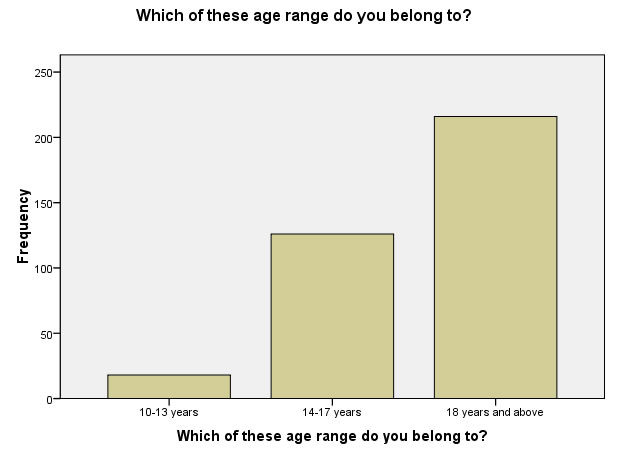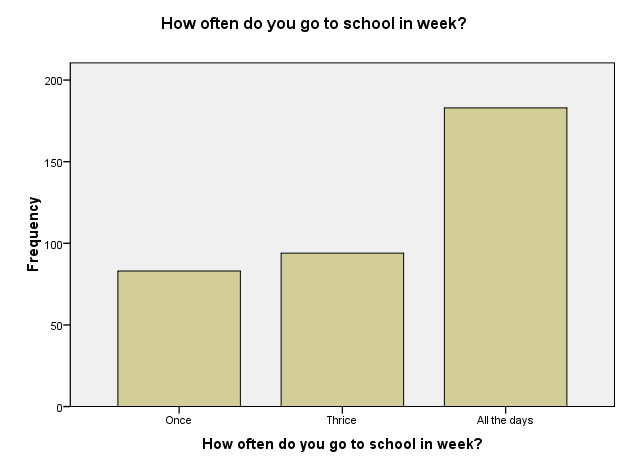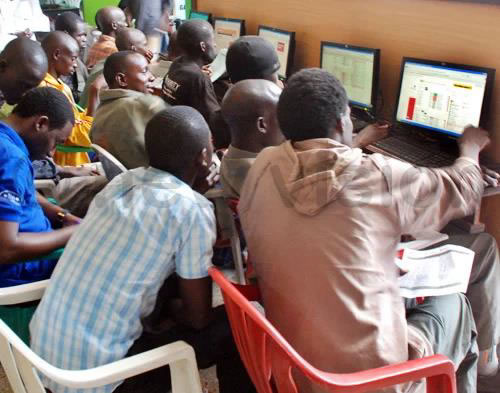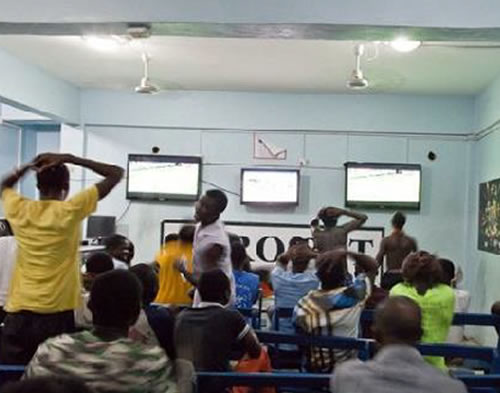BARAKA
POLICY INSTITUTE
Social Justice, Equity & Progress
The Prevalence of Sports Betting and Its Effects on Education and Child Development in Ghana
Sports gambling popularly referred to as “sports betting” has become prevalent in the Ghanaian society. As permissible as it may be, the havoc sports betting causes such as its destructive addictiveness cannot be ignored by society. One dimension to the menace of sports betting which is of critical concern is its effects on education and development of children and the youth. There have been several reports and incidences of children, students and the younger population engaging in sports betting activities. It is in this regard that the Baraka Policy Institute (BPI) in 2019 conducted a research to explore the extent to which children of school going age are involved in sports betting and to ascertain the effects of that on schooling outcomes. The study administered a close-ended questionnaire on 360 randomly sampled bettors found at various betting centers in four cities; Accra, Kumasi, Takoradi and Tamale. The findings from the study reveals very worrying trends.
Children’s involvements in sports betting
The Gaming Act 2006 (Act 721) prohibits younger persons under 18 years from engaging in sports betting in which ever form or shape and actually instructs betting companies not to allow younger people entry into betting centers or use any betting machine. The BPI study findings however showed that many young people were actively engaged in sports betting and were doing so both at betting centers as well as using online betting platforms including the use of mobile phones. Out of the 360 bettors sampled, 40.6% of them were below the legal betting age of 18years. The breakdown of the ages of the respondents are as follows; 10-13 (5.0%), 14-17 (35.6%), 18 years and above (59.4). Scientific evidence shows that young people easily develop destructive addictiveness to betting leading to social stress and emotional instability which affect their mental growth. A study by Kindbridge Behavorial Health Center in the United States revealed that younger people have higher rate of dealing with gambling problems (stress and emotional stability). 82% of students who were part of the study admitted to have experienced destructive betting addiction.

Proximity of Betting Centres to schools and vulnerable communities
The study also sought to assess the presence and the visibility of betting centers in communities across the country and their exposure to minors and school children. The Gaming Act 2006 criminalizes betting at public places, Act 721 (34). Also, the Guidelines on betting advertisements by the Gaming Commission makes it illegal to place any outdoor advert including betting centers within 200 meters to schools and children’s playground. The spirit behind both laws is obvious; to deter and minimize exposure of betting activities to vulnerable people including children. Surprisingly, the study found serious infractions to these laws and regulations. Study findings show that 37.8% of betting centers sampled for the study were located within 200 metres radius to basic schools. Many of them were also located near public places like mosques/churches and markets areas which makes them generally accessible to all manner of persons, contrary to what the Gaming Act stipulates. The study also noticed an alarming presence of multiple sports betting companies operating mostly in poorer/deprived communities enticing the youth into betting and eventual deprivation.
Effects of sports betting on schooling and learning outcomes
A critical dimension to the prevalence of sports betting and the active involvement of minors is its effects on schooling of young people who engage in it. The study approached this by assessing attendance and punctuality to school. It asked respondents to indicate how often they go to school in a week. The results are shown as: once (23.1%), three times (26.1%), all the days (50.8%) as shown graphically below;

It is evident that children’s involvements in sports betting is causing truancy and drop-outs among school children. This act as a social force to achieving educational goals including the SDGs targets.
Robust regulation on betting needed
This study (and numerous public observations) has revealed widespread violations of regulations surrounding sports betting activities in the country. The ill-effects of sports betting can be very destructive and one can only describe the venture as a legalized “social evil” which is only permitted under liberal societies. But societies must function on the value of social conscience to protect its vulnerable population particularly children and the younger population. The havoc sports betting creates calls for robust regulatory and monitoring regime with the ultimate aim of protecting public interest as envisaged in both the Gaming Act 2006 and the Gaming Commission’s guidelines on Advertisements. As exemplified by many countries, immediate measures must be put in place to address the increasing involvement of young people in sports betting, particularly, online betting.


Recent Publications
- Reflecting on the State of Technical and Vocational Education and Training (TVET) in Ghana
- The Prevalence of Sports Betting and Its Effects on Education and Child Development in Ghana
- The Fight against COVID 19 and South Africa’s Ban on Alcohol – The Lessons for Ghana
- Overview Practice of Inclusive Education Policy
- Improving School Performance Through Leadership
Get in touch
P. O. BOX LG 1267,
Legon, Accra
+233-(0)30 393 4431
+233-(0)30 255 5479
info@barakapolicy.org
Navigate
© 2020 Baraka Policy Institute. All Rights Reserved. | Powered By: Gesatech Solutions - Your Trusted It Partner
Get in touch
P. O. BOX LG 1267,
Legon, Accra
+233-(0)30 393 4431
info@barakapolicy.org
Navigate
© 2020 Baraka Policy Institute. All Rights Reserved. | Powered By: Gesatech Solutions - Your Trusted It Partner
